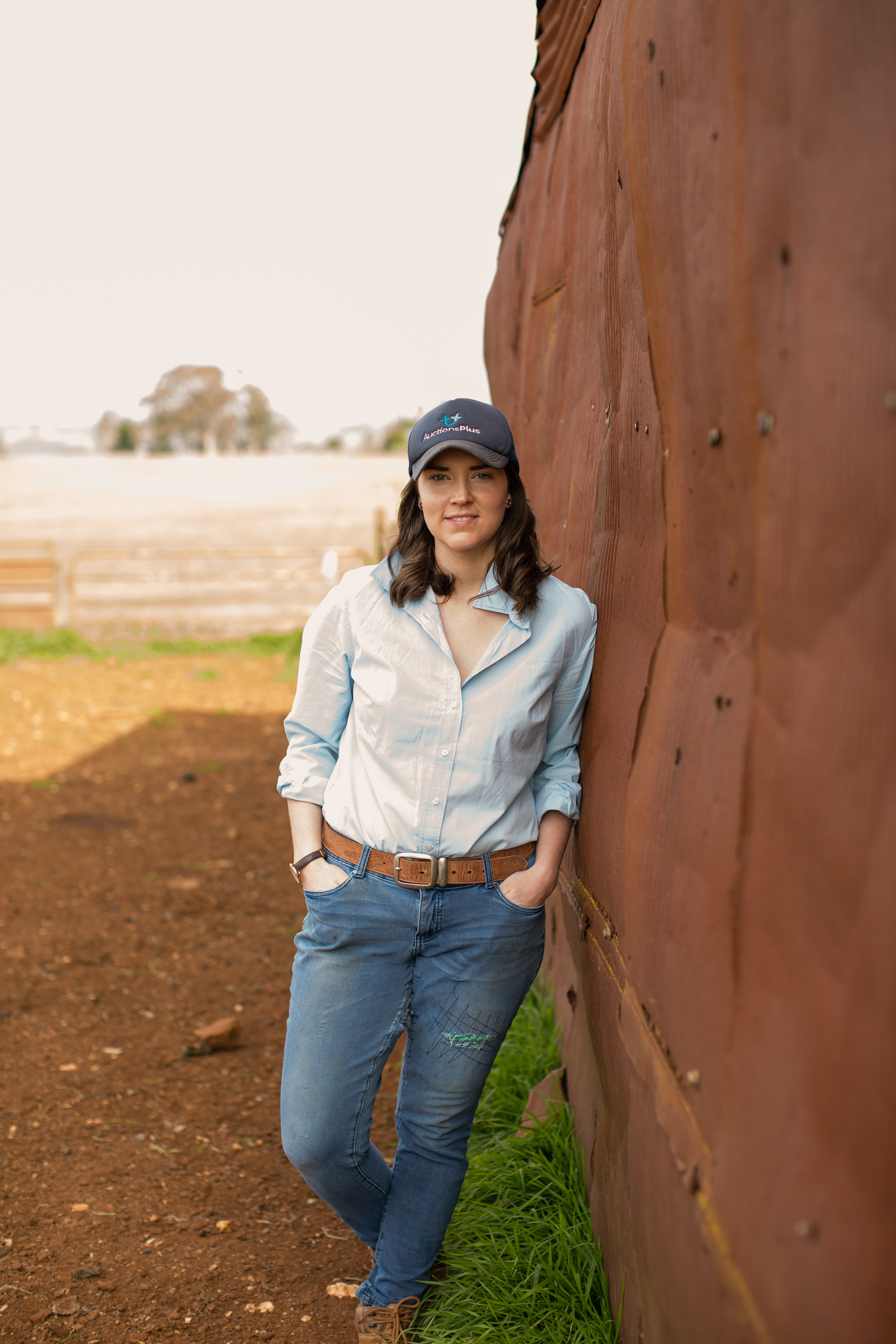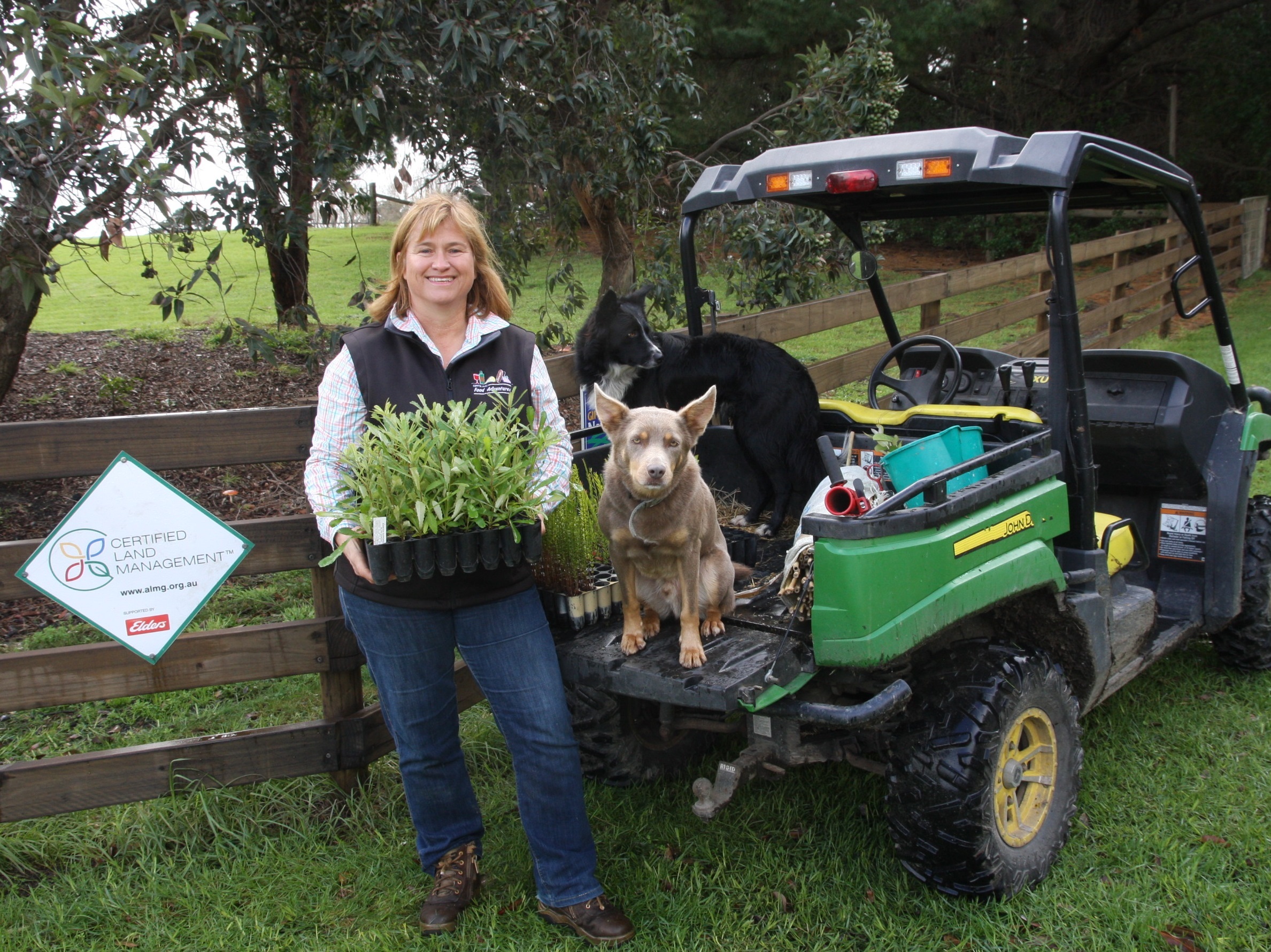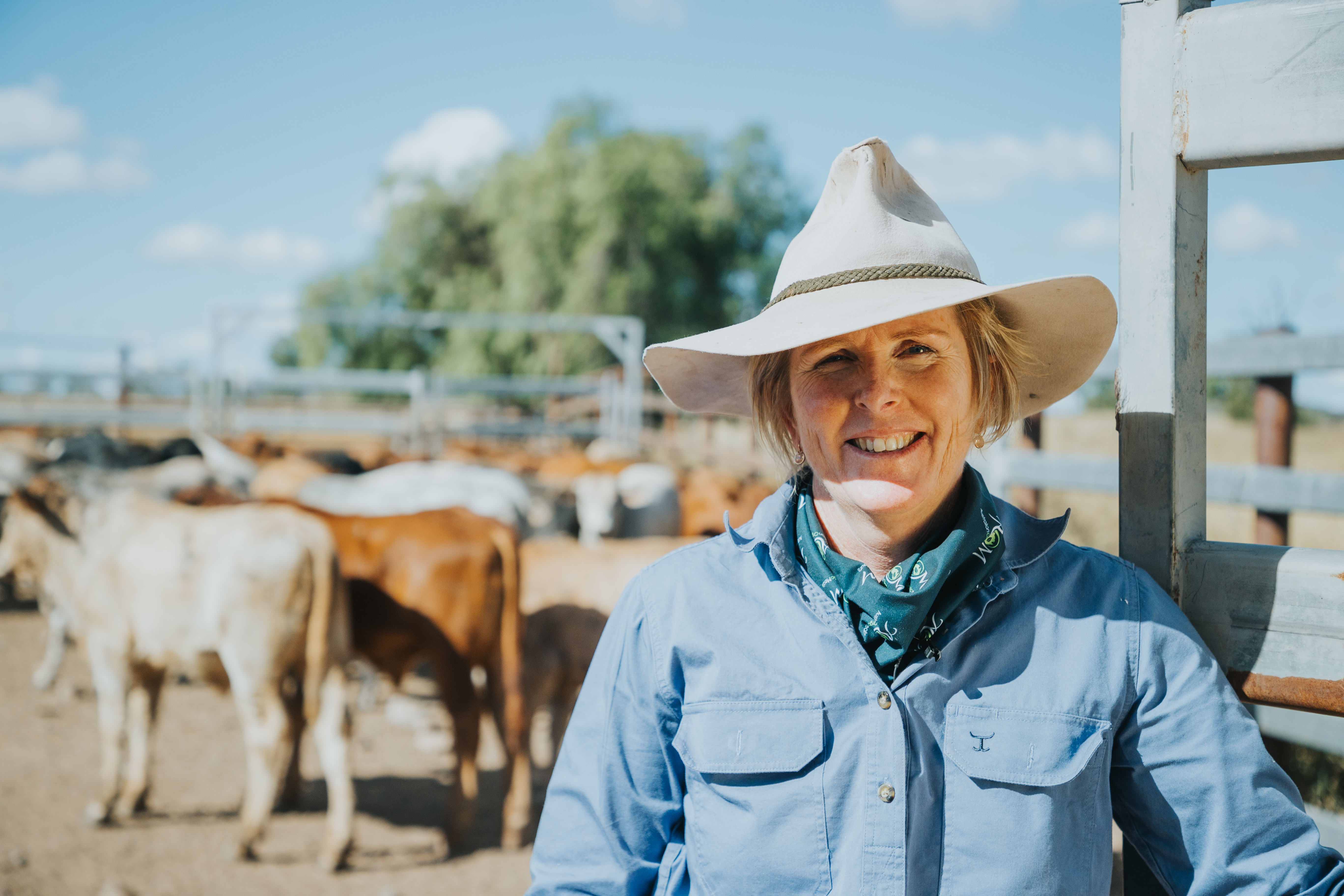Beef industry celebrates female contribution to sustainability this International Women’s Day
Leaders from across the thriving Australian beef industry are reiterating the critical role women play in achieving sustainability this International Women’s Day.
Australian Beef Sustainability Steering Group (SSG) Member and Central Queensland beef producer, Melinee Leather, said sustainability not only included ecological health, but extended to important measures of diversity.
“Sustainability is often seen through the lens of the health of the natural environment and animal welfare, however a truly sustainable industry extends its definition far beyond that,” Mrs Leather said.
“Diversity, including female representation, is critical to bringing new ideas and a balanced perspective to the beef supply chain, and to ensuring our industry has the right structure in place to meet the needs of our environment, animals, communities and customers for generations to come.
“Women have a great capacity to connect families, communities and ultimately nations, which is vital for a sustainable future.”
The ABSF was established in 2017 to help industry showcase its sustainability credentials and identify areas of improvement. Recognising an opportunity for growth, industry selected “Diversity in the workplace”, including the representation of women, as one of the priorities used to track sustainability performance.
Data collected by the Framework in 2020 showed 39.6 per cent of the workforce on farms and in feedlots was female, while women made up 25.7 per cent in the processing sector.
“The data being collected through the ABSF is an important marker against which we can continually measure how we are progressing and identify pathways for ongoing improvement,” Mrs Leather said.
To celebrate International Women’s Day, the ABSF spoke to three inspiring beef industry leaders (including Mrs Leather):
Verity Price, Manager-Policy, Australian Lot Feeders’ Association

What is your background or connection with the beef industry?
I grew up in rural NSW on my family’s prime lamb enterprise, but from an incredibly young age had a deep-seeded passion for the cattle industry and politics, two things that don’t traditionally go hand-in-hand. These passions found me forging a career in representative organisations.
How would you describe the current level of female representation in the beef industry?
The representation of women in the feedlot sector, from entry level roles to senior management, is quite inspiring. I think it is our fast-paced work environment, continued investment in people and innovation which draws people.
One of the amazing parts of lot feeding is the diversity of career opportunities. Whether your interests lie in livestock, compliance management, logistics, or livestock nutrition, the feedlot sector can provide women with incredible avenues for professional development with likeminded people.
What is your advice to women pursuing a career in the beef industry?
Seize every opportunity. So many women I talk to, in all fields of work, have a hard time backing themselves, and it’s something I struggle with too. I often find myself underestimating my knowledge, my strategic thinking, and my adaptability to work environments. But the more we throw ourselves into opportunities as they present themselves, the more confidence we gain in our abilities.
Surround yourself with the right people. The Australian beef industry is full of passionate men and women, who are only more than willing to support your leadership aspirations.
Jenny O’Sullivan, Gippsland beef and sheep producer, Principal at Gippsland Food Adventures and ABSF Sustainability Steering Group Member

How would you describe the current level of female representation in the beef industry?
There are many women involved in the beef industry, however, there needs to be more women at the top. Very often, we see women take on positions in regional or community groups with men filling industry positions, but is really important we achieve greater diversity in industry leadership - both in beef businesses and industry organisations.
My personal experience has included jointly operating our family livestock business and taking on a variety of industry roles including with Cattle Council of Australia, Landcare, and the South East Victoria & Tasmania Southern Australia Livestock Research Panel. I was also chair of the Red Meat Panel from 2016 to 2018.
How is female representation linked to sustainability?
I think we are seeing women gravitate towards the sustainability space because of their ability to nurture and their concern about their long-term impact on the world. They are not just looking at profit, and are proactive across each of the four pillars of the ABSF - animal welfare, economic resilience, environmental stewardship, and people and community.
What is most rewarding for you working in the industry?
I love working with animals and being at the cutting edge. As an industry, we are investing extensively in research and improvement, and the CN30 initiative is a great example of this. It is extremely rewarding to be working in an industry that is making great change and, at the same time, feeding our nation and other countries with a very important form of protein.
Melinee Leather, Leather Cattle Company, Central Queensland and ABSF Sustainability Steering Group Member

How did you become involved in the beef sector?
When I married my husband, Robert, 34 years ago, there was little to no opportunity to continue your career once you married and moved to a rural property. With no internet and limited communication of any description, the idea of remotely working was not on anyone’s radar. It was then I decided I would make agriculture and the beef industry a career.
Along with the work I have done with my husband building our family business, I have also contributed over 14 years of industry representation from state farming organisations through to national industry groups, including cattle Council of Australia and the National Farmers’ Federation.
What makes females successful in roles in agriculture?
Women have a very clear vision of the world they want for their family, and agriculture underpins our basic needs for a sustainable future, including food security. Agriculture was historically a very male-dominated industry and, over time, women have had to remain strong and resilient to have their voices heard. Because of this, it is now common for men and women to have an equal say and workload within the industry.
Where are there further opportunities for improvement?
In agriculture women are still the main carers of children and the elderly, often with little or no help available. There needs to be more opportunities for rural and remote women to access assistance with childcare and respite support to allow them to pursue more active positions within the industry.
With more reliable phone and internet service women could also be more active in the technology space and be able to work more effectively remotely. This is still unachievable in many parts of Australia.
It’s also very important for women to maintain balance within their life. Very often in agriculture, business and family are intrinsically linked, and you need to be able to step back and separate them.